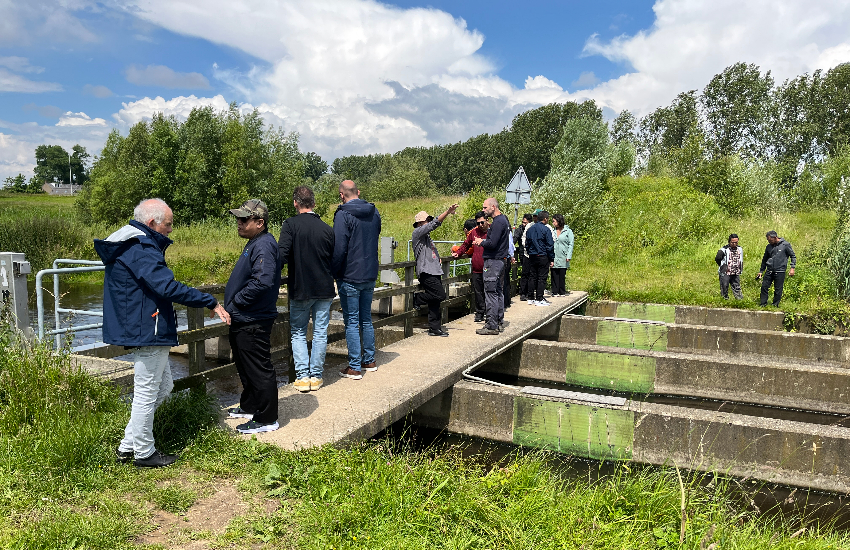From June 8 to June 16, 11 partners from the 4 local Blue Deal partners of Java, Indonesia, visited the Netherlands. In addition to knowledge sharing, we paid significant attention to strengthening the cooperation among the various Indonesian partners and the regions.

The Dutch team organised a comprehensive programme, featuring a mix of presentations and field visits to the Dutch water authorities of Schieland and Krimpenerwaard, Aa and Maas, Delfland, and Hollands Noorderkwartier.
Learning from each other on climate adaptation
On Monday, June 10, the delegation visited the research institute Deltares, to discuss the relationship between land subsidence and coastal erosion. Subsequently, the delegation went to The Green Village, a field lab centre for innovation, to observe innovative developments in climate adaptation. Climate change is a crucial theme where we can learn a lot from each other, as Indonesia has been dealing with heavy rainfall and significant flooding for much longer.
Water management in hill areas
Tuesday, June 11, focused on water management in hill areas. Topics included area processes (stakeholder involvement) for the spatial integration of water management. The delegation was surprised by the extensive water storage capacity and the absence of pumping stations.
Webinar: challenges and solutions from Indonesia
On Wednesday, June 12, a webinar was organised at the Dutch water authority Delfland. A total of 46 participants from various water authorities registered. During the webinar, our Indonesian partners provided insights into their challenges and search for solutions. The impact of waterlogging was made tangible through visual materials (photos and videos), emphasising the importance of our cooperation.
Following the webinar, there was a visit to the water level management control room, and the afternoon focused on chemical and ecological water quality.
Nature-based solutions
In the north of the Netherlands, the last 2 days focused on coastal protection with a visit to the Hondsbossche Sea Defence, where coastal protection and nature development go hand in hand. Additionally, a water purification plant with a large helophyte filter, a nature-based solution, was visited on Texel. We concluded the week with a teambuilding activity at the beach of Camperduin.
